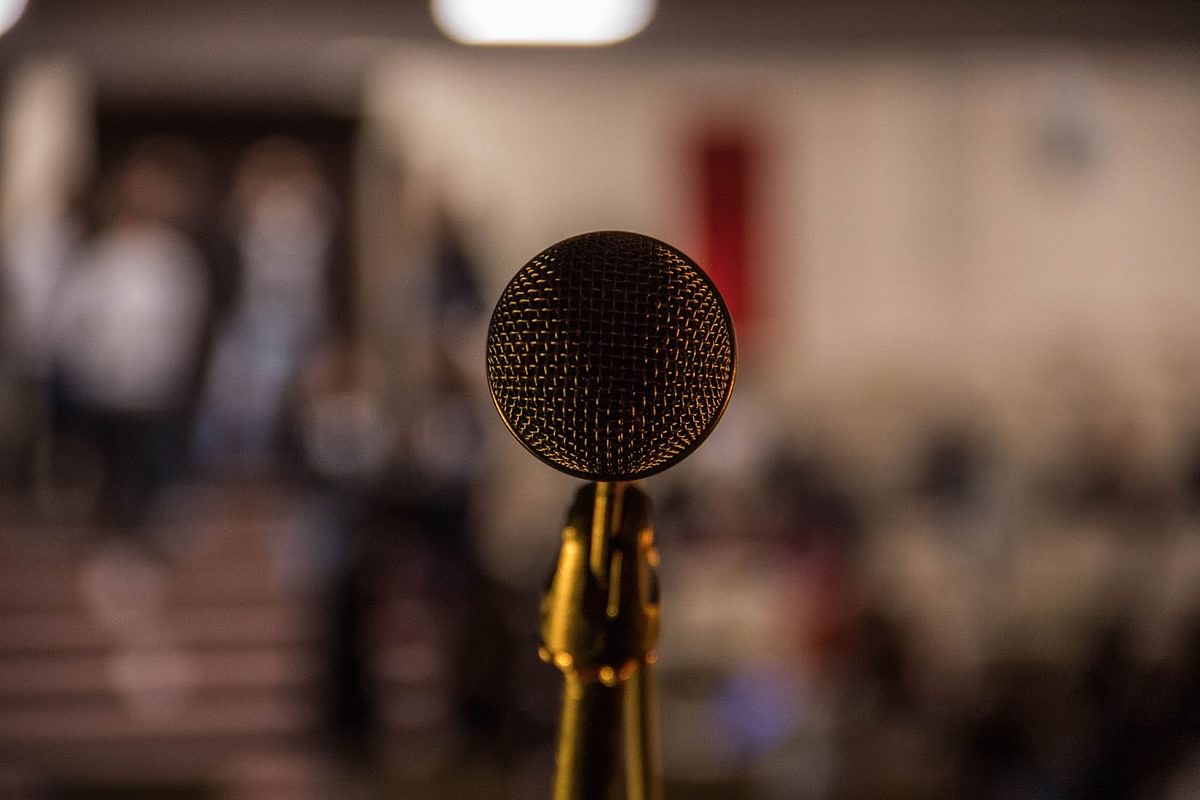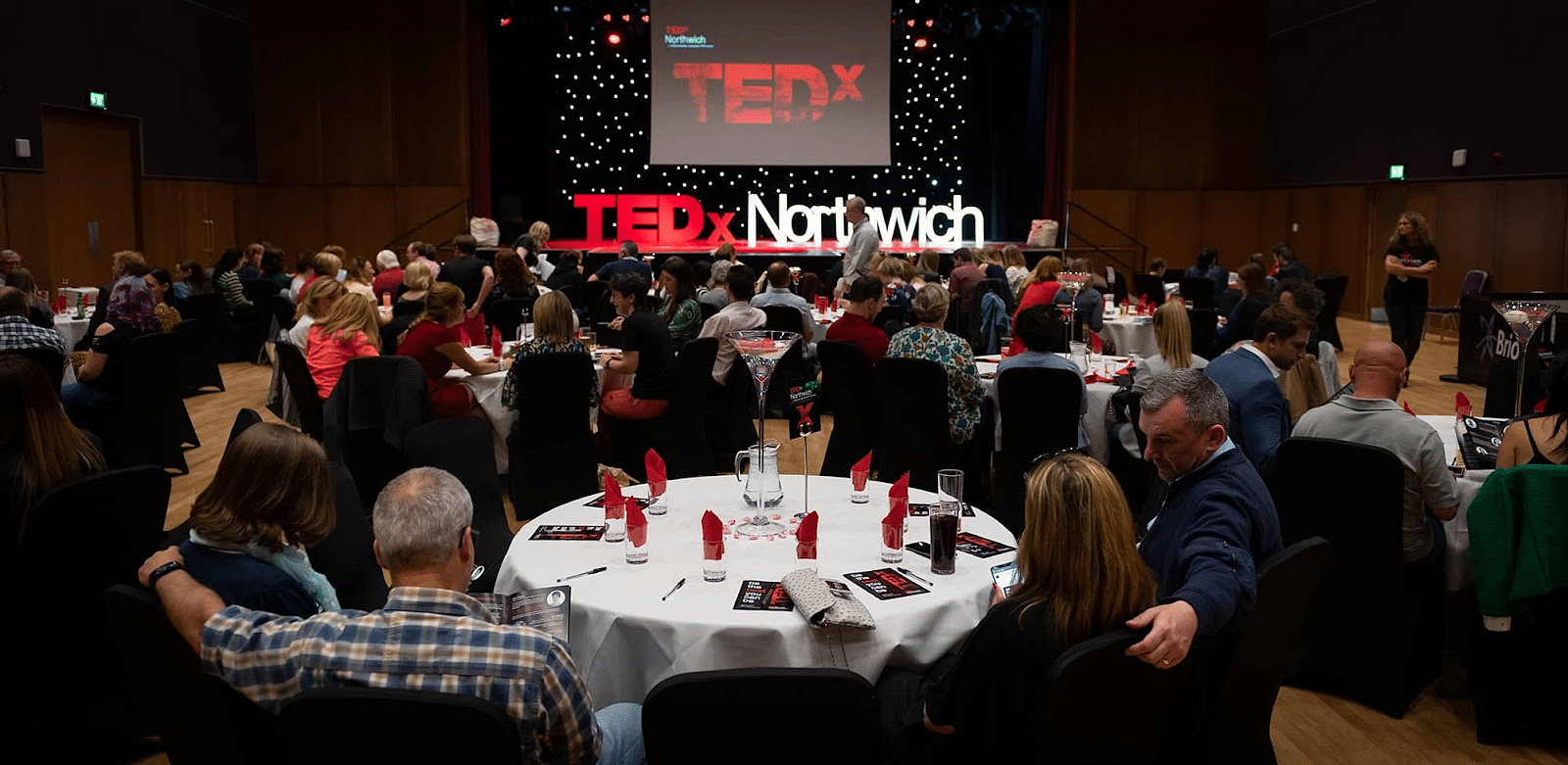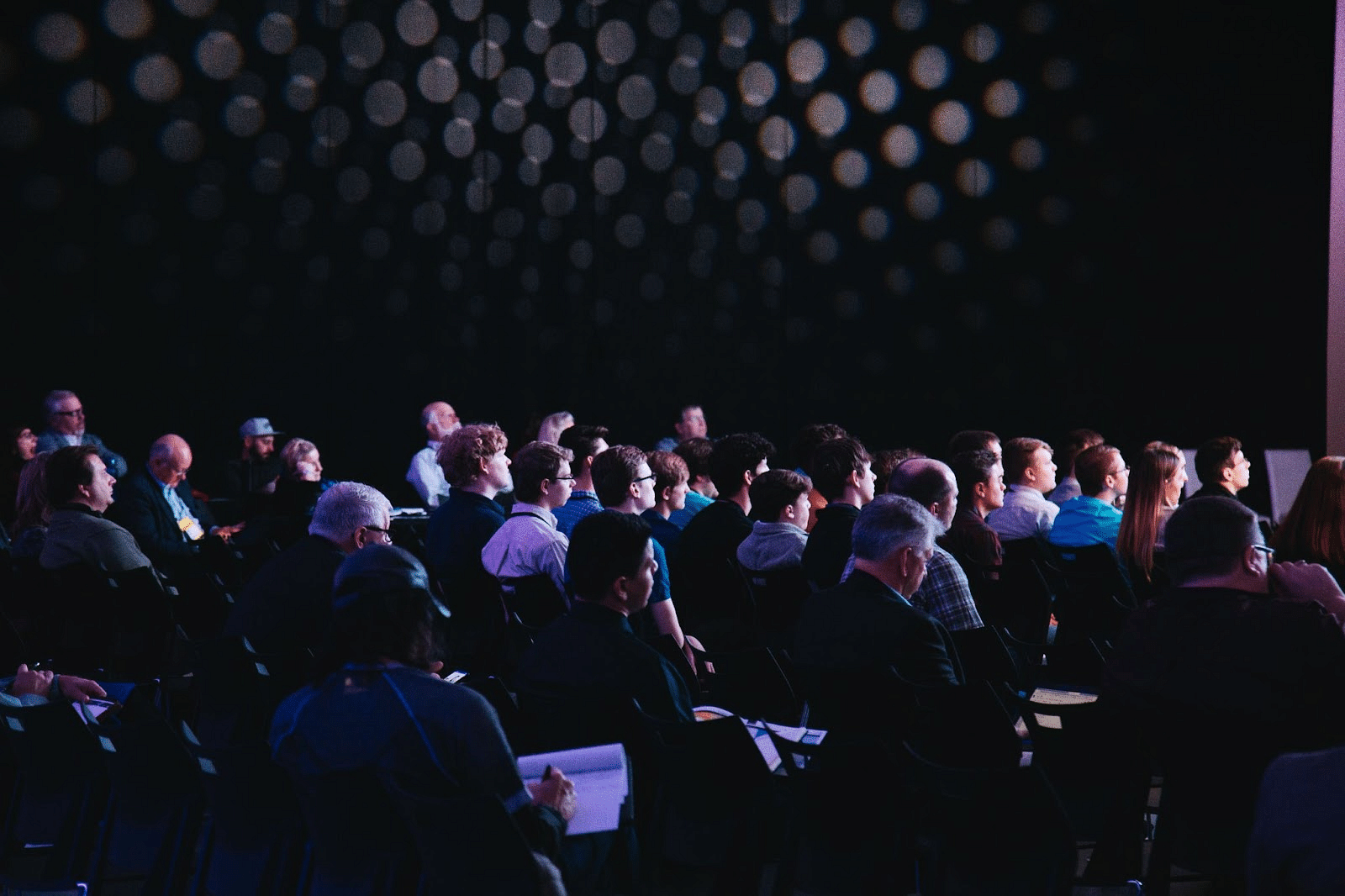
Based on personal experience, this lumenologist shares how being on a TEDx stage can help your brand get noticed
By Jim James, Founder EASTWEST PR and Host of The UnNoticed Entrepreneur.
Dr Shelley James — a world-renowned lumenologist and, yes, my sister — and I have worked together for a couple of years now, starting with the amazing videos for Luna Pro. Made with the Lumen5 app, these videos have already made over a million views.
In the new episode of The UnNoticed Entrepreneur, she returned to the show to talk about TED Talks. She recently spoke on a TEDx stage (TEDx is the smaller franchise of TED Talks) and on the podcast, she explained why she prioritised doing it to discuss the impact of light on wellbeing.
Image from LinkedIn
Dr Shelley is passionate about light and she realised that the TED platform will allow her to share that with many more people. This is her first reason. The second is that she wanted to create information that would then pave the way for people to understand what she does and why — and then invite her to speak on other platforms, too.
Her speaking on the TED stage has a dual purpose: One is to increase her impact and the other is to build her business and her profile so that she can make a difference in other ways.
The Road to The TEDx Stage
TED isn't something that you just pitch up to and say, "Hi, I'm going to do a TED Talk.” And if Dr Shelley knew what a long, long road it is to be able to do it, she wasn’t sure if she would have started the process in the first place (nonetheless, she said that she still would).
There are lots of different franchises of TED Talks — people who host the so-called TEDx, which are the regional TEDs. Different organisations and teams (who are mostly volunteers) around the country and the world organise their own TEDx platforms and their own stages. They organise the process of application, selection, preparation, and filming.
You can find out which TEDx teams are open for applications by searching online. She decided that she wanted to get some help to go through that process. So she signed up with Elaine Powell, who is a TEDx speaker and coach herself. She was also previously a guest on The UnNoticed Entrepreneur podcast.
Dr Shelley signed up with her programme to learn how to apply to TED. As an applicant, you need to be really clear about your idea and know where to apply. You also need to have some support throughout the process — because you might apply for many TED organisations and you might not even get one.
Thanks to Elaine, she was able to go around the UK to find TEDx stages which she could apply to. And there were a number of reasons that compelled them to choose the best ones.
One of them was, obviously, they need to be open. And TEDx Northwich was one of the first ones to come out after COVID to have a live platform that felt really important. And the second was that when you look at all these TEDx stages, you’ll see that they are really very different from one another. Though they need to apply the same basic TED branding and standards, some look as if they’re in village halls — the lighting and sound aren’t great; the way people are presenting also isn’t that great. The messages are always really interesting, but some of the organisers really stand head and shoulders above others in terms of their professionalism and the quality of the whole environment.
Image from TEDx Northwich
And so, TEDx Northwich really stood out for Dr Shelley as a team who really cared about doing this activity, supporting their TEDx speakers as well as they possibly could. She applied to TEDx Northwich among others — they were the first ones she applied to and were also the first ones who accepted her.
That was the first stage in her journey.
Then, she went through six months of coaching, training, reconfiguring the talk, and memorising the talk. And then there were three to four different dress rehearsals wherein she had to travel to Northwich with a couple of different persons. They worked out what Dr Shelley should wear and helped her practise breathing and slowing down.
In Northwich, there’s a production team, a speaker coach, and a lighting person among others. The whole thing was incredibly well organised and supported. What you must do is to remember and memorise your talk.
You also have to submit the talk in advance — word for word — because they are going to do due diligence. They are going to check every single fact. For instance, when she mentioned her nieces and goddaughter in the talk, they needed to know who they were to make sure that she wasn't telling tales about people who either weren't willing to be approached or who actually didn't exist at all.
According to Dr Shelley, it was an amazingly rigorous process and she was very glad to have chosen a team that was incredibly professional, well-organised, and supportive. Part of that also meant that the other people that they chose to be speakers were all remarkable as well. And she considers herself lucky enough to be on stage with eight other amazing women speakers.
Though the whole process took months — and hundreds of pounds in petrol, and clothes, and mascara, and sort of craziness of trying to work out how to make her TED Talk engagement work — she’s proud to have actually made it through.
How a Coaching Programme Helps
If Dr Shelley got all the coaching from the TEDx people in Northwich, what role did Elaine play for her?
She first met Elaine through another coaching programme that she’s been on before. And her speciality is really helping people to articulate their idea. And in order for you to be considered to be a TED speaker, the organisers need to know that you've got a really clear idea that’s worth sharing; that you're somebody who can formulate and structure an argument very clearly.
Image from Unsplash
The first thing she did was a group programme with Elaine. In about twelve weeks, they went through a process of learning how to say what they wanted to say, doing some memorisation exercises, and knowing how to speak, pause, and engage with the audience. That process was already really powerful as a speaking training programme.
What Elaine did was to bring her students to become speakers who had an idea to share and who know what that was.
The second thing was that when they downloaded the forms to apply, she would also generously review the applications with them to make sure that each one that they applied to was receiving the best possible version of their talk and presentation. The aim is to help them stand out from the crowd when organisers have their inboxes full of applications.
Dr Shelley’s understanding is that there’s certainly a big old inbox to the TEDx Northwich. As expected, good organisers get lots and lots of applications — hundreds and thousands across the UK and the world want to be on their stage. However, not getting accepted doesn't mean to say that your idea isn't one worth sharing or that it isn't worth framing in your own particular way.
And this is probably what encouraged people like Dr Shelley to be part of a speaker programme. Mostly, she didn't know anybody else who'd ever done it or who was doing it. For her, it's a bit daunting: Who am I to even try and do this?
Having somebody who's done it, who keeps cheering you on — alongside other people (In her case, she had an amazing buddy who’d check in every week and practise things with her) — really makes a massive difference. When you’re going into any sort of competition, having a coach and a system really helps you to refine your performance.
An Idea Worth Sharing
TED stands for Technology, Entertainment, and Design. But if you look at TEDx Talks online, they aren't necessarily about technology. The core is that you should have an idea worth sharing.
You can find a talk about racial equality or racial bias. There was one about a project that a woman started during the lockdown and was prompted by her own despair to plant trees. Another one was about a lady who had cancer and had lost her eyelashes; she went on to develop artificial eyelashes for people who've lost theirs. Another one was about growing your confidence.
These talks are all different. The main thing was that it presents an idea that somebody else could learn something from — an idea that, perhaps, can improve others’ lives, too. Dr Shelley happened to be talking about lighting technology.
The Impact of Being on a TEDx Stage
For Dr Shelley, the impact of having talked on the TEDx stage has been huge.
The reasons that she did it really were to help her share her message more widely and to build her own confidence — to be clear about what she had to say and share that. Ultimately, she wanted to have other people invite her to do that in other settings.
Image from Unsplash
Since her talk, she’s been invited and got some paid speaking engagements with a number of organisations, which she considers very exciting. And now, she’s using some of the skills and competence that she’s developed through the TEDx process to do that.
Talking on TEDx also shows your commitment, your passion, and your determination to go above and beyond. As proof, Dr Shelley has existing clients reaching out to her and saying, "Oh, that was interesting. Can you come and speak for us?"
Alongside that, she’s also encapsulating what she’s spoken about in a book and an e-book. It’s beginning to build different formats by which she can deliver her ideas. And these are formats that she can use also as a funnel into other kinds of activities in the course, having a whole range of different ways to leverage content.
In sum, her TEDx stint has really helped her to define and distil the message that she got around light and its impact, and then repurpose that content.
From the TEDx Crowd to a Broader Audience
TED also uploads videos of their talks to share with a broader audience. When asked about how long will it take for Dr Shelley’s video to be published, she mentioned that it’s been a bit of a strange time of suspense.
As a speaker, you’ll go through a high as there are a hundred people in the audience. Her talk on TEDx Northwich was held in a much bigger theatre, but due to COVID, the numbers were restricted. Nonetheless, the crowd was an enthusiastic and passionate audience. And if you’ve spoken via Zoom before, you’ll know the difference that it makes when you actually have an audience leaning in and breathing and clapping and sighing — all those things that happen in a full room of people.
Then, the video is taken and edited. It’s also why it’s important to work with a team who’s very professional because with them, the final edited video will be of beautiful quality (including its sound). They’d also ensure that all of the facts that you said have been checked to make sure that they're correct.
After that, the whole package — the checked, edited, and fine-tuned video — goes to TED in the US. They will then check the package before they release it. If you spoke on TEDx, you won't know when that's going to be. In fact, if they find an error or decide that the quality isn't sufficient, they could decide not to publish it. And while Dr Shelley has been on a TEDx stage, she can't yet say that she’s a TEDx speaker until it's formally approved and released.
Screengrab from TED
An Act of Volunteerism, An Opportunity to Expand Networks
All of the volunteers at TEDx are passionate about ideas. And amazingly enough, talking on their stage is absolutely free — other than your own time to train to be part of it.
Apart from professional speaking coaches, they also got professional photographers or filmmakers (Luckily, Dr Shelley’s talk only ran about 18 minutes). But no matter the length of the talk, the people behind it do it because they're passionate about what they do.
They do it because it's a great networking opportunity for them as well. Saying that they're part of the TED programme actually helps them and it’s working as a funnel towards clients, too. Those who want to volunteer to be part of it are able to meet people who want to speak, and they get new clients that way.
There is no money being exchanged; there’s only simply a desire to do things better. And that's another reason to make sure that you choose a really great TEDx team to work with.
But TEDx is just one thing. The TED stage is the bigger one and it’s based in the States. In Dr Shelley’s understanding, the TEDx’s are being submitted to big TED for them to review and check the content and the quality. Some ideas will be considered deserving to be on an even bigger stage. This is why there are speakers who are being invited to apply to or are being selected to do a TED speaking engagement in the States.
Just Go For It
The one takeaway that Dr Shelley learned from this experience would be to go for it.
As with any big thing that you might do in your life — whether it be a marathon, getting married, or doing anything — there will be a lot to be said about the process of doing something that you didn't even think was possible before you started. But just that fact is already something that will help you stand against many other challenges that you might encounter.
How you do one thing is how you do everything. And knowing that you can achieve that will give you some confidence in other areas you've realised you can do. So even if you're in any doubt, go for it because you never know what it will lead to. Also, get the coaching that you need.
As an entrepreneur with a vision to share‚ which is the very reason why you started your business — the TEDx platform could be a great way for you to both distil the message and share it.
This article is based on a transcript from my podcast The UnNoticed Entrepreneur, you can listen here.
Cover image by Ilyass SEDDOUG on Unsplash






